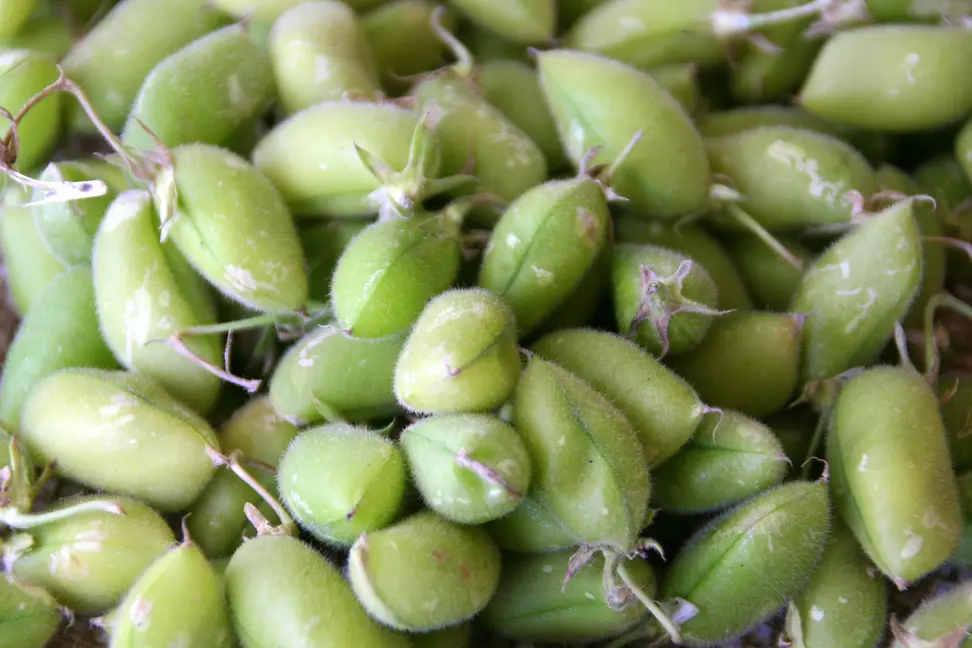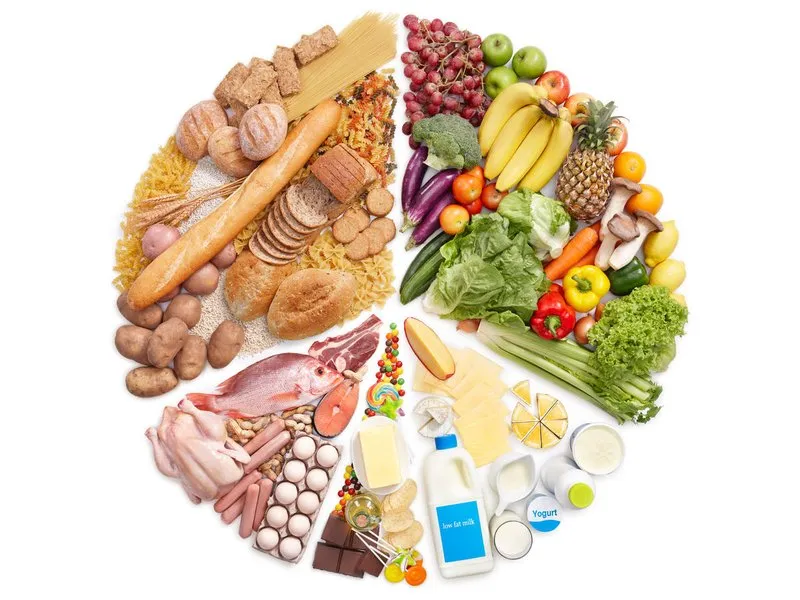Garbanzo beans, also known as chickpeas, are small but mighty legumes that have been a staple in diets across the world for centuries. These little beige wonders are not only delicious but also packed with nutrients that can significantly benefit your health. Whether you’re a seasoned chickpea lover or just starting to explore their potential, this guide will walk you through the many health benefits of garbanzo beans and why they deserve a permanent spot in your kitchen.
What Are Garbanzo Beans?
A Brief History
Garbanzo beans have a rich history dating back to ancient times. Originating in the Middle East, they were one of the first cultivated crops and have been enjoyed for over 7,000 years. Ancient Egyptians, Greeks, and Romans all incorporated garbanzo beans into their diets, recognizing their nutritional value and versatility. Today, they are a beloved ingredient in various cuisines, from Mediterranean to Indian, and are prized for their ability to absorb flavors and adapt to a variety of dishes.
Nutritional Profile
Garbanzo beans are a nutritional powerhouse. They are rich in:
- Protein: Perfect for vegetarians and vegans, providing about 15 grams per cooked cup, making them an excellent plant-based protein source.
- Fiber: A single cup delivers approximately 12.5 grams, promoting digestive health and helping to maintain a healthy weight.
- Vitamins and Minerals: They are an excellent source of folate, iron, magnesium, phosphorus, and manganese. These nutrients are essential for various bodily functions, including energy production, immune function, and bone health.
In addition to these, garbanzo beans contain antioxidants like polyphenols, which help protect your cells from damage and reduce inflammation.
Health Benefits of Garbanzo Beans
1. Aids in Digestion
Garbanzo beans are packed with dietary fiber, which is essential for maintaining a healthy digestive system. The high fiber content helps prevent constipation by adding bulk to stool and promoting regular bowel movements. But the benefits of fiber don’t stop there; it also acts as a prebiotic, feeding the beneficial bacteria in your gut. A healthy gut microbiome is crucial for overall health, as it influences everything from digestion to immune function and even mental health.
Research has shown that diets high in fiber are associated with a reduced risk of developing conditions like irritable bowel syndrome (IBS), diverticulitis, and colorectal cancer. By including garbanzo beans in your diet, you’re taking a proactive step towards supporting your digestive health.
2. Supports Weight Management
If you’re looking to shed a few pounds or maintain a healthy weight, garbanzo beans can be your best friend. Their high protein and fiber content contribute to feelings of fullness, which can reduce overall calorie intake. Unlike refined carbs that lead to quick energy spikes and crashes, the complex carbohydrates in garbanzo beans provide a steady source of energy, helping you stay satisfied longer and preventing unhealthy snacking.
A study published in the journal Appetite found that people who consumed garbanzo beans regularly were more likely to have lower body weight, a smaller waist circumference, and lower body fat percentages. This is likely due to the fact that garbanzo beans help stabilize blood sugar levels, reducing cravings and overeating.
3. Regulates Blood Sugar Levels
Garbanzo beans have a low glycemic index (GI), meaning they release sugar into the bloodstream slowly, preventing spikes in blood sugar levels. This is particularly beneficial for individuals with diabetes or those at risk of developing the condition. The fiber in garbanzo beans also helps stabilize blood sugar by slowing down the absorption of carbohydrates.
A study published in the American Journal of Clinical Nutrition found that consuming low-GI foods like garbanzo beans can improve glycemic control and reduce the risk of developing type 2 diabetes. Additionally, the magnesium in garbanzo beans helps regulate blood sugar levels by enhancing insulin sensitivity, making it easier for your cells to absorb and use glucose.
4. Boosts Heart Health
Heart disease is a leading cause of death worldwide, but garbanzo beans can help keep your heart in good shape. They are rich in soluble fiber, which has been shown to lower LDL (bad) cholesterol levels. Soluble fiber binds to cholesterol in the digestive tract and helps remove it from the body before it can enter the bloodstream.
But that’s not all—garbanzo beans also contain potassium and magnesium, which are essential for maintaining healthy blood pressure levels. Potassium helps balance the effects of sodium in your diet, while magnesium helps relax blood vessels, improving blood flow and reducing the strain on your heart.
A study in the Journal of Nutrition found that regular consumption of legumes, including garbanzo beans, was associated with a reduced risk of coronary heart disease. By incorporating garbanzo beans into your diet, you’re not only nourishing your body but also protecting your heart.
5. Enhances Bone Health
Strong bones are essential for a healthy life, and garbanzo beans can contribute to maintaining bone density. They are an excellent source of calcium, magnesium, and phosphorus, all of which are critical for bone health. These minerals work together to strengthen bones and reduce the risk of osteoporosis.
Calcium is well-known for its role in bone health, but magnesium is equally important. It helps regulate calcium levels in the body and is involved in the structural development of bone. Phosphorus, on the other hand, is a major component of bone tissue, making up about 85% of the phosphorus found in your body.
In addition to these minerals, garbanzo beans contain vitamin K, which plays a crucial role in bone metabolism. Vitamin K helps regulate bone mineralization and supports the binding of calcium to the bone matrix, enhancing bone strength and reducing the risk of fractures.
6. Promotes Skin Health
Your skin is a reflection of your overall health, and garbanzo beans can give it a natural glow. The zinc in garbanzo beans helps repair damaged skin and protect against oxidative stress, which can lead to premature aging. Zinc is essential for collagen production, which maintains skin elasticity and prevents the formation of wrinkles.
Additionally, the B vitamins in garbanzo beans, including niacin, folate, and vitamin B6, support cell regeneration and improve the skin’s barrier function. Niacin, in particular, helps reduce inflammation and hyperpigmentation, while folate and vitamin B6 are crucial for DNA repair and cell turnover.
Garbanzo beans also contain antioxidants like polyphenols, which neutralize free radicals that can damage skin cells. By reducing oxidative stress, these antioxidants help prevent the signs of aging, such as fine lines, wrinkles, and age spots.
7. Supports Mental Health
Garbanzo beans are a great source of folate, a B-vitamin that plays a crucial role in brain function. Adequate folate levels are associated with a reduced risk of depression and improved cognitive function. Folate is involved in the production of neurotransmitters like serotonin, dopamine, and norepinephrine, which regulate mood and behavior.
Magnesium, another nutrient found in garbanzo beans, also supports mental health by regulating neurotransmitters and promoting relaxation. Magnesium deficiency has been linked to increased anxiety and stress, so incorporating magnesium-rich foods like garbanzo beans into your diet can help improve your mental well-being.
A study published in the Journal of Affective Disorders found that higher dietary intake of magnesium was associated with a lower risk of depression. By including garbanzo beans in your meals, you’re not only nourishing your body but also supporting your mental health.
8. Provides Plant-Based Protein
For those following a vegetarian or vegan diet, garbanzo beans are an excellent source of plant-based protein. They provide all the essential amino acids your body needs to build and repair tissues. While they are not a complete protein on their own, combining them with other plant-based proteins like grains, nuts, or seeds can ensure you get a complete amino acid profile.
Including garbanzo beans in your diet ensures you meet your protein requirements without relying on animal products. This is particularly important for vegetarians and vegans, who may struggle to get enough protein from their diet.
In addition to protein, garbanzo beans are rich in other nutrients like iron and zinc, which are often lacking in vegetarian and vegan diets. Iron is essential for oxygen transport and energy production, while zinc supports immune function and wound healing.
9. May Help Prevent Cancer
Some studies suggest that garbanzo beans may have cancer-fighting properties. The fiber, antioxidants, and phytonutrients found in garbanzo beans can help protect cells from damage and reduce inflammation, both of which are linked to a lower risk of certain cancers, including colon cancer.
The fiber in garbanzo beans helps promote regular bowel movements and reduce the time that harmful substances stay in contact with the lining of the colon. This reduces the risk of colon cancer by preventing the buildup of carcinogens in the digestive tract.
Garbanzo beans also contain saponins, a type of phytonutrient that has been shown to inhibit the growth of cancer cells and induce apoptosis (programmed cell death) in cancer cells. Additionally, the antioxidants in garbanzo beans help neutralize free radicals, which can cause DNA damage and lead to the development of cancer.
While more research is needed to fully understand the cancer-fighting potential of garbanzo beans, incorporating them into a balanced diet is a delicious way to support your overall health and reduce your risk of cancer.
10. Supports Immune Function
Zinc is crucial for the production and function of immune cells, including T-cells, which are essential for fighting off infections. Zinc also helps regulate the immune response and supports wound healing. A deficiency in zinc can impair immune function, making you more susceptible to infections and illnesses.
Iron is another key nutrient found in garbanzo beans that supports immune health. Iron is necessary for the production of hemoglobin, which carries oxygen to cells throughout the body. Adequate iron levels help ensure that your immune cells have the energy they need to function properly. Additionally, iron is involved in the production of immune system molecules like cytokines, which play a role in the body’s response to pathogens.
Garbanzo beans also contain vitamins such as vitamin C and B vitamins, which further support immune health. Vitamin C is known for its role in enhancing the immune response and protecting against oxidative stress. B vitamins, including folate, help maintain healthy immune function by supporting the production of new cells and DNA synthesis.
How to Incorporate Garbanzo Beans into Your Diet
Delicious and Versatile
One of the best things about garbanzo beans is their versatility. They can be used in a variety of dishes, making them an easy addition to any meal. Here are some creative ways to enjoy garbanzo beans:
- Hummus: Blend garbanzo beans with tahini, lemon juice, garlic, and olive oil for a creamy, nutritious dip. Hummus can be used as a spread on sandwiches, a dip for vegetables, or a topping for salads and bowls.
- Salads: Toss garbanzo beans into your favorite salad for an extra boost of protein and fiber. Try adding them to a Mediterranean salad with cucumbers, tomatoes, olives, and feta cheese for a refreshing and satisfying meal.
- Roasted Snacks: Roast garbanzo beans with olive oil and your favorite spices for a crunchy, healthy snack. Simply toss them in olive oil, season with salt, pepper, or other spices like paprika or cumin, and roast at 400°F (200°C) until crispy.
- Curries and Stews: Add garbanzo beans to curries and stews for a hearty, filling meal. They absorb flavors well, making them a great addition to dishes like chickpea curry, vegetable stew, or a spicy chickpea and spinach dish.
- Pasta Dishes: Mix garbanzo beans into pasta dishes for added protein and texture. Try adding them to a pasta salad with roasted vegetables and a light vinaigrette or mix them into a tomato-based pasta sauce for extra substance.
- Burgers: Use mashed garbanzo beans as a base for homemade veggie burgers. Combine them with breadcrumbs, spices, and your favorite vegetables to create a flavorful and satisfying burger patty.
Cooking Tips
If you’re using dried garbanzo beans, be sure to soak them overnight and cook them thoroughly. Soaking helps to reduce cooking time and improve the beans’ digestibility. After soaking, drain and rinse the beans before cooking them in a pot of fresh water. Simmer until tender, which usually takes about 1 to 1.5 hours.
Canned garbanzo beans are a convenient option for busy days. They are pre-cooked and can be used directly from the can. However, be sure to rinse canned beans thoroughly to remove excess sodium and any canned flavor. Choose low-sodium or no-salt-added varieties whenever possible to keep your sodium intake in check.
Storage and Preservation
Garbanzo beans can be stored in various ways to ensure they remain fresh and flavorful. Dried beans should be kept in an airtight container in a cool, dry place. They can last up to a year if stored properly. Cooked garbanzo beans can be refrigerated in an airtight container for up to 5 days or frozen for up to 6 months. To freeze, spread the beans in a single layer on a baking sheet, freeze until solid, and then transfer to a freezer bag.
In a Nutshell
Garbanzo beans are more than just a tasty addition to your meals—they’re a nutritional powerhouse that offers numerous health benefits. From supporting digestive health and regulating blood sugar to promoting heart health and boosting your immune system, garbanzo beans truly deserve a place in your diet.
Their versatility allows them to be used in a wide range of dishes, making it easy to enjoy their health benefits in various ways. Whether you’re adding them to salads, making hummus, or preparing hearty stews, garbanzo beans provide a nutritious and delicious boost to your diet.
So, the next time you’re planning a meal, consider incorporating these amazing legumes into your cooking. By doing so, you’re not only enhancing the flavor and texture of your dishes but also taking a significant step towards better health. Enjoy the many benefits of garbanzo beans and make them a staple in your kitchen for a healthier, happier you!





Amazing , I didnt know that Garbanzo Beans have that much benefits.
Thank you!